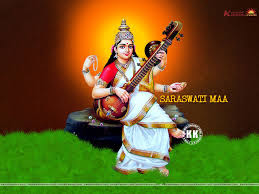Vedantasara : 21.
210. Torpidity (Laya) is the lapse of the mental state into sleep because of the failure to rest on the Absolute.
211. Distraction (Vikshepa) is the resting of the mental state on things other than the Absolute, because of the failure to rest on It.
212. Attachment (Kasaya) is the failure of the mental state to rest on the Absolute, owing to the numbness brought on by impressions due to attachment even when there is no torpidity or distraction.
213. Enjoyment (Rasasvada) is the tasting by the mental state of the bliss of Savikalpa Samadhi owing to the failure to rest on the Absolute. Or it may mean continuing to taste the bliss of Savikalpa Samadhi while taking up the Nirvikalpa Samadhi.
214. When the mind, free from these four obstacles, rests unmoved, like the flame of a lamp sheltered from the wind, as one with Absolute Consciousness, it is called the Nirvikalpa Samadhi.
215. Thus it has been said: “When the mind is torpid, rouse it; when it is distracted, bring it back to calmness; when it becomes attached, be aware of it; when it is established in equipoise, do not distract it any more. Do not linger on the bliss that comes from the Savikalpa Samadhi, but be unattached through discrimination” (Gaudapada-karika III, 44-45). “As a lamp sheltered from the wind does not flicker, so is a Yogi’s controlled mind (Gita VI-19).
VI. THE JIVANMUKTA:
216. Now are being described the characteristics of a man who is liberated in this very life.
217. A man liberated-in-life (Jivanmukta) is one who by the knowledge of the Absolute Brahman, his own Self, has dispelled the ignorance regarding It and has realized It and who owing to the destruction of ignorance and its effects such as accumulated past actions, doubts, errors, etc., is free from all bondage and is established in Brahman.
218. Witness such Sruti passages as: “The knot of his heart is broken asunder, all his doubts are solved and his past actions are neutralized when He who is high and low (cause and effect) has been realized” (Mund. Up. II-2-8).
219. Such a liberated man, while he is not in Samadhi, sees actions not opposed to knowledge taking place under the momentum of past impressions – actions that have already begun to bear fruit, which he experiences through the physical body composed of flesh, blood and other things; through the sense-organs affected by blindness, weakness, incapacity etc., and through his mind subject to hunger, thirst, grief, delusion, etc., -- yet he does not consider them as real, for he has already known their nothingness. As a man who is conscious that a magical performance is being given, even though he sees it, does not consider it as real.
220. Witness such Sruti passages as: “Though he has eyes he is as one without eyes; though possessed of ears, he is as one without ears”, etc.,
Continues...




Comments